 This post is prompted by reading another blogger’s post. As they say, enough is enough – this issue has to be addressed. Let’s look at the main reasons that professionals disbelieve parents seeking diagnostic assessments, or support, for their autistic children:
This post is prompted by reading another blogger’s post. As they say, enough is enough – this issue has to be addressed. Let’s look at the main reasons that professionals disbelieve parents seeking diagnostic assessments, or support, for their autistic children:
- The child presents differently in front of professionals (whether it be teachers, diagnosticians, social workers etc.) than they do elsewhere (the child is old enough to have learned masking behaviours which confound professionals who don’t understand masking is taking place);
- The professional has a cynical attitude towards parents overall and a tendency to assume the worst before considering other possibilities;
- The child rejects any possibility of being different or having a condition and makes deliberate attempts to hide their difficulties (more likely in older children);
- The service involved is restricting resources and wants to avoid supporting diagnosis which opens doors to those resources;
- The professional lacks experience or expertise in autism, or has stereotyped views of it;
- The professional has their own issues, which could include disliking the parent, being a vindictive or controlling person, has a personality disorder or mental illness resulting in unbalanced behaviours.
OK, let’s discuss these point-by-point:
(1) The different behaviour between school and home is the most oft-cited example of this scenario, although of course it isn’t only necessarily ‘home’, it can be socially with friends and relatives too. All children behave differently between school and home. Only with autistic children the difference can be much more marked. In this case, we are of course referring to those children who mask in school, so that teachers do not see the challenging behaviours the family experience, that indicate the child’s autism difficulties.
What teachers need to remember, is that as a rule they have no autism training (at best a short module when training) – hence the Government has finally just put autism training on the agenda for all new teachers. (What happened to giving the existing ones some damned training too eh!) They also need to remember that they are not the expert in that child – their parents are! School is not a natural environment, it’s very artificial to have 30+ children bunched together in a room sitting listening to someone, so why would they expect the child to be their normal relaxed safe self, with all that peer pressure, school rules and expectations upon them?
When it comes to a clinic environment, the child is likely to feel inhibited because usually the clinicians are strangers. The child is likely to know they are there to be tested and observed and even if they are young, it’s an environment they are not used to. (Let’s face it, the diagnostic situation in the UK means it’s very rare for pre-school children to be diagnosed with autism unless they are at the severe end of the spectrum. This country is not good at early intervention sadly.) So in this clinic environment, the child will still not feel relaxed and safe, to behave as their true self.
So the question is why are professionals not understanding this blatantly obvious situation and instead automatically assuming parents are lying/exaggerating, or responsible for the challenging behaviours at home? When is common sense and logic going to prevail?
(2) Sadly, cynical professional attitudes towards parents is a widespread problem. So much so, I produced an information sheet on it: “Professionals/Authority and the Parent Blame Culture” The research evidence bears it out – read that document and your eyes will pop. It’s shocking and unacceptable. While you have professionals assuming parents are all useless idiots who are just seeking benefits, or are responsible for their child’s traits through poor parenting, there will always be a huge barrier to a child being diagnosed or supported. That is a huge failing in their duty of care towards that child. Why should prejudices, bias and outright negligence be allowed to prevent a child obtaining diagnosis and support? Is it any wonder there are so many autistic children suffering in the mental health system? So many autistic children being excluded, or electively home-educated, through school not meeting their needs? This is about the children, not about the professional’s personal views. Blanket attitudes based on a small minority of parents that may behave in negligent or nefarious ways, is idiocy. This also accounts for why autistic children are being misdiagnosed with attachment disorder. Another enlightening fact sheet about that here: “The Overdiagnosis & Misdiagnosis of Attachment Disorder” and a brilliant response in that regard by an Educational Psychologist Dr Hilary Dyer, to a diabolical article on the BPS website, stating that PDA is probably attachment disorder. Parent-blame has to stop!
(3) The autistic child rejecting their diagnosis (or potential diagnosis) is a really tough one, the name for rejecting a diagnosis that has been made is anosognosia and as you are probably starting to expect I might, I wrote something about that too: “Anosognosia and Autism – A Real Concern”
People might say, that if someone doesn’t want a diagnosis of this type of condition (i.e. a non life-threatening one) that they should have some say in this. An adult can make their own decisions in that regard about themselves of course. But when it’s a child and they are struggling and need recognition and support for it, there is no other option. There are many times when parents really do know best and children really don’t know what’s best for them.
As a parent in this position, there are times when there is really no choice. If your child cannot cope in school and school-refuses, professionals are (metaphorically or literally!) rattling at the windows, banging on the doors demanding to know why and unless there is a medical reason, the EWO will be round and the LA will be a-fining! With (2) above, clearly if you cannot evidence a reason for your child’s distress and most especially if (1) is in play, the only option is a diagnosis. All you can do is hope that one day your child will be at peace with it and accept who they are. But the problem is, when your child is highly intelligent and a great masker and mimicker, it can make things very tough for professionals who don’t really know their stuff to see through that. Having had an autistic child say before their assessment “I will act all normally and make them see I’m not autistic!” I can tell you that coupled with an incompetent CAMHS with an entrenched (2) viewpoint, it is far from plain sailing being believed! CAMHS need to understand that some children will be resistant to diagnosis and to possess the expertise to see through that!
(4) Restriction of resources is very common, cut-backs here, there and everywhere. But if someone has a condition they need a diagnosis of it. Because as many times as professionals say support is not tied to diagnosis, us parents know better and I can show you ten-fold (and then some) families who can prove otherwise. The NAS isn’t the only one to report on this: (NAS page updated to remove comment since screenshot taken! Still available to view here however: http://tweb-cms.autism.org.uk/about/diagnosis/criteria-changes.aspx) Having seen information through a subject access request, where mental health staff discussed not diagnosing people they believed did not need services, I can tell you this is very real. Having also read many stories on parent forums where CAMHS told parents that their child didn’t need a diagnosis because they were managing in school (which could well be because of (1) anyway!), is yet more evidence. Again, shocking. And it’s so damned short-sighted! Unsupported autistics tend to break-down over time, if a child is not diagnosed by reaching secondary age things are likely to really hit the fan soon after. Secondary school is where the social and school demands are greater and differences can become more apparent. Mental health difficulties increase through lack of support and these children end up costing services more in the long run. If they are not diagnosed they will likely receive inappropriate mental health support and no recognition of the underlying cause of their difficulties. It is usually what is behind the ridiculous “Not Enough Traits for a Diagnosis” scenario. Short-term thinking helps no-one!
(NAS page updated to remove comment since screenshot taken! Still available to view here however: http://tweb-cms.autism.org.uk/about/diagnosis/criteria-changes.aspx) Having seen information through a subject access request, where mental health staff discussed not diagnosing people they believed did not need services, I can tell you this is very real. Having also read many stories on parent forums where CAMHS told parents that their child didn’t need a diagnosis because they were managing in school (which could well be because of (1) anyway!), is yet more evidence. Again, shocking. And it’s so damned short-sighted! Unsupported autistics tend to break-down over time, if a child is not diagnosed by reaching secondary age things are likely to really hit the fan soon after. Secondary school is where the social and school demands are greater and differences can become more apparent. Mental health difficulties increase through lack of support and these children end up costing services more in the long run. If they are not diagnosed they will likely receive inappropriate mental health support and no recognition of the underlying cause of their difficulties. It is usually what is behind the ridiculous “Not Enough Traits for a Diagnosis” scenario. Short-term thinking helps no-one!
(5) Lack of expertise in autism is rife in CAMHS. Being legally qualified to assess and diagnose autism does not equal being automatically good at it. The worse they are, the more likely (1) is going to be a barrier to diagnosis. Also (4) probably feeds into (2) because stressed staff are sure to have an onward adverse effect on service users and quality of provision. If the service is not funding staff to have adequate autism-specific training and keeping up-to-date with latest knowledge, how can they claim to have the right expertise? Clinicians should also have the wherewithal to be proactive and take some individual responsibility for working towards their own clinical excellence. What seems to be the modus operandi at CAMHS is a quick training module in administering an ADOS-2 and a totally tick-box approach to assessment. That’s just not good enough. Our children are the future, what sort of future will they be if they suffer diagnostic failure and zero support?
(6) A professional with their own personal issues…yuk, saved until last, but not the least important by any means. Sadly, there are some very unbalanced and even deranged people in professional jobs! And you know what they say, people that distrust others so pathologically, are usually the most untrustworthy (it’s called projection). Professionals with mental ill-health, addictions, prejudices, personality disorders, disastrous upbringings that have made them unbalanced – you name it, they are not any more immune than the rest of the population. In fact rates of addiction are very high among doctors (and check out link no. 2 below, they took the job in the first place and aren’t taking a sabbatical whilst they are unfit to practice!). We’ve probably all encountered more than one doctor with a God complex, or a doctor who dislikes well-informed parents. I guess this aspect is the one that can sometimes be the hardest to do anything about, humans are prone to err. Sometimes people just take a dislike to someone no matter what their role is. If the person who dislikes you is a doctor assessing your child or your child’s teacher, it’s tough. A professional’s word is often seen as sacrosanct and how dare a mere parent challenge it! You can ask for an independent 2nd opinion if you feel diagnostic failure results from a clash with a clinician. There are always complaints processes that exist, even if they often end in a whitewash at least the problem is recorded. Ironically I’ve heard from more than a few parents who have been targeted by professionals after they raised complaints. Hell hath no fury like a professional scorned eh. So cover all your bases and collect evidence of your child’s difficulties.
One of the problems that can arise is being targeted falsely for MSBP/FII and if anything is going to derail a child being diagnosed that will. Collate your evidence, video your child’s behaviours if necessary, document what strategies you have tried and what has worked (especially with PDA strategies) and what has failed. If they push a parenting course, take it but say that whilst you are happy to go on the course if it will help your child, you wish your child concurrently on the waiting list for autism assessment because the Government states that early intervention is necessary and they have a duty of care. If it’s a teacher…you could always ask the school to move your child to another class if it’s possible. But where the issue is that they aren’t supporting the view of autistic behaviours in school for the assessment, school evidence is not the be-all-and-end-all and there is a wealth of official information on (1) out there which will counter that. If the attitude is from an EP, if you can afford it get a private EP assessment as evidence. You can do this for an autism assessment too. There are options, you don’t need to let bad behaviour from a professional be a complete barrier, no matter how difficult and stressful (and unfair on your child) it is. You can also report badly-behaving professionals to bodies such as the GMC, HCPC etc. if they are behaving negligently and/or you have good reason to suspect, or know, any unprofessional behaviour is due to any reason that impacts their functioning. Bodies such as Healthwatch record complaints and patterns of failings. The bottom line is, professionals like that should not be in the job!
…if you don’t believe a professional would behave badly in their job, here is some light reading for you (if the parent blame document wasn’t enough for you!)
- “The schools that spy on ‘Munchausen Mums’: Teachers accuse them of lying about children’s autism to get attention” http://www.dailymail.co.uk/news/article-2554867/The-schools-spy-Munchausen-Mums-Teachers-accuse-lying-childrens-autism-attention.html
- “Tricks Professionals Use to Hide Addictions” https://www.elementsbehavioralhealth.com/addiction/tricks-professionals-use-to-hide-addiction/
- “Disruptive and Distressed Doctors – Relevance of Personality Disorder” http://www.eaph.eu/pdf/Disruptive+and+distressed+doctors+-+Relevance+of+personality+disorder.pdf
- “Doctor Struck off After Lying to Cancer Charities to Get Funding” http://www.standard.co.uk/news/health/doctor-accused-of-making-up-data-to-get-money-from-cancer-charities-a3307106.html

So come on professionals ~ get your act together and stop with the disbelieving already! And remember folks…


 It had to be done. Due to the popularity of the ‘first episode‘ I thought a follow-up was warranted. Autistic children are suffering across the UK, from missed diagnosis, misdiagnosis and tardy and inept support from CAMHS. So here be it (read it and literally, weep…):
It had to be done. Due to the popularity of the ‘first episode‘ I thought a follow-up was warranted. Autistic children are suffering across the UK, from missed diagnosis, misdiagnosis and tardy and inept support from CAMHS. So here be it (read it and literally, weep…):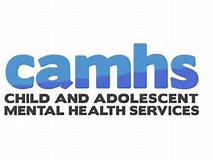
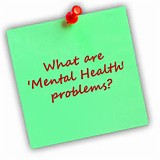

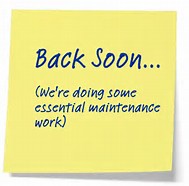
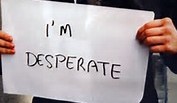

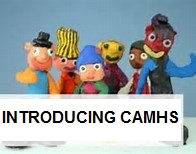
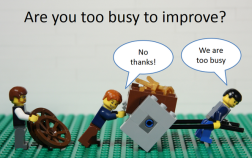
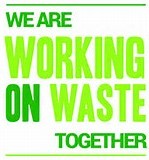
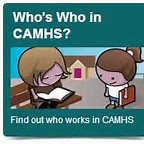


 This post is prompted by reading another blogger’s
This post is prompted by reading another blogger’s  (NAS page updated to remove comment since screenshot taken! Still available to view here however:
(NAS page updated to remove comment since screenshot taken! Still available to view here however: 
